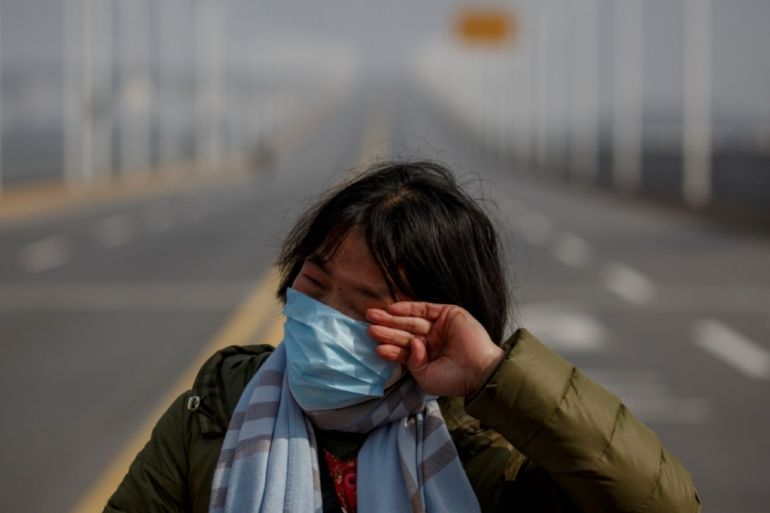Doctor’s Note: The hidden health costs of coronavirus
Why is the number of people seeking treatment for life-threatening conditions such as heart attacks plummeting?

It feels as if, in the last few weeks, we have done nothing but talk about coronavirus. Our social media feeds are filled with updates on the daily death toll, every headline is dominated by it, and we have been restricted to our homes as a result of it.
It is no surprise that my work as a doctor has also been taken over with patients who have symptoms or concerns about the virus.
Keep reading
list of 3 itemsDoctor’s Note: Cats and the coronavirus
Doctor’s Note: Can the coronavirus reactivate?
But something is worrying me. I do not see as many patients as usual about non-coronavirus health issues.
Before this pandemic, my list of patients to see was full. I never had an empty appointment slot: Patients were still getting sick from non-coronavirus-related illnesses.
Where have they all gone?
Granted, some of the patients I used to see did not really need a doctor to make them better, just time for their minor ailment to run its course. But there were some who came in with worrying signs and symptoms; things that would alert me to the possibility of cancer or a heart attack and warrant an urgent referral to my colleagues at the local hospital.
We are a large inner-city UK primary care medical practice with more than 25,000 registered patients. Before the coronavirus pandemic, we would average about 30 referrals to hospital per week for patients with suspected cancer. Since the lockdown, this has dropped to just three per week.
Speaking to colleagues in hospitals, I have been receiving reports of delayed presentations in patients with heart attacks and appendicitis leading to potentially avoidable deaths. It is impossible to say for sure, but there is a feeling among my colleagues that had these patients come in earlier, their outcomes may have been better.
Is this because people are worried about attending hospital for fear of catching coronavirus or do they simply assume healthcare professionals are too busy to see them?
I wanted to find out if these were just isolated incidents or whether they were part of a wider trend.
Earlier this month, the British Heart Foundation (BHF) stated: “New data from hospitals across England show that the number of people seen in hospital with a suspected heart attack has halved since the beginning of March … from an average of 300 per day at the beginning of March, to 150 per day. Across the UK, this could lead to unnecessary deaths and more people living with debilitating heart failure if they do recover.”
Although it is still too early to draw conclusions about the wider health implications of the coronavirus pandemic, there does appear to be a worrying downward trend in the numbers of people seeking medical help for other, non-coronavirus illnesses which could be life-threatening.
This picture is playing out globally. According to a poll conducted by the US-based Twitter group Angioplasty.Org, comprising US cardiologists, there has been a significant drop in the number of heart attack patients presenting for treatment.
Meanwhile, a study in Spain has shown a 40-percent reduction in emergency heart procedures since the coronavirus outbreak.
Last week, Sara Hiom, director of early diagnosis at Cancer Research UK, expressed concern about the drop in the number of referrals coming from primary care providers in the UK for those patients with suspected cancer, amidst the coronavirus pandemic.
She added she was aware of a 70-percent reduction in suspected cancer referrals in some areas.
A study in Hong Kong has shown that patients are presenting later in the course of their heart attacks during the coronavirus pandemic than before it.
In the UK, the government has repeatedly stressed that the National Health Service (NHS) remains open for business, so why are people not coming forward?
We believe the reasons are varied. Most people do not want to add to the burden of the already stretched health services, and they may not feel their health concern is as important as the wider coronavirus pandemic.
They may then wait until their condition significantly worsens before seeking medical attention.
People may also be worried about leaving their homes when we have all been told to practise social distancing – even to get medical help. They are naturally worried about catching the virus. Hospitals and primary care locations may be perceived as high-risk settings where the virus is more prevalent.
Whatever the reason, the message from healthcare staff is clear: Do not delay seeking medical attention for potentially life-threatening illnesses.
The effects of this pandemic are going to be felt for years to come in every sector of human life.
Once it is over, we may see a surge in numbers of those needing medical intervention for things that should have been treated earlier or have been left too late.
This will only add to the human suffering being felt already and to the demand being placed on healthcare systems around the world.